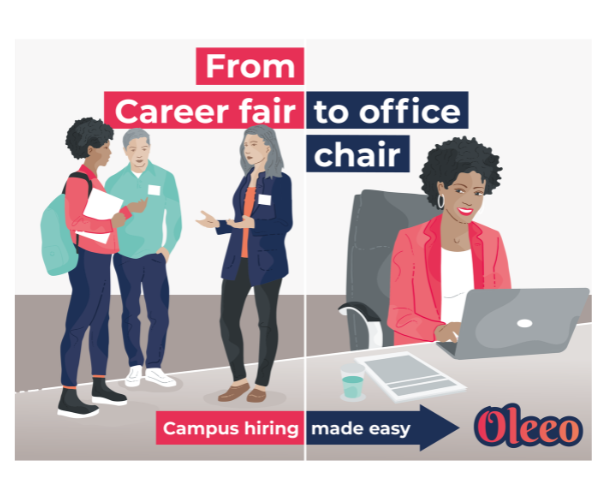While there has been growth in enrollment in computer science (CS) majors over the past decade, and an explosion of career opportunities for students with computing skills, women remain underrepresented in computer science majors and careers.
In her article in the NACE Journal, Julia Lapan, director of career development at the University of Virginia School of Engineering & Applied Science, writes that due to their underrepresentation in the classroom and societal messaging around technology being a “masculine domain,” women in CS:
- Often feel isolated and marginalized;
- May report a sense of impostor syndrome;
- Might be relegated to notetaking tasks in group projects;
- Might not be listened to or taken as seriously as their male classmates;
- May have a need to “prove” themselves; and/or
- May experience outright sexism and gendered microaggressions, although it may be subtle and covert.
Lapan teamed with Katie Smith, assistant professor of higher education at Seton Hall University, on a study during which they interviewed 13 women who were graduating in spring 2020 from a computer science program at a large, public research institution. As part of the study, the researchers asked the women about their internship experiences.
Despite the participants reporting positive experiences overall, Lapan says there were certain nuances the women navigated, primarily due to their gender. Most notable was the sense of being one of only a few women—and sometimes the only woman—on their team, which, Lapan explains, made the women aware of their marginalized status and had implications for their internship experiences and their future career plans.
The data Lapan and Smith collected gave insight into three processes women experienced throughout their internships in computing:
Questioning technical competence—Several of the women in the study questioned whether they were qualified for a technical internship, which led some to avoid even applying for internships in the first place. Having supportive friends and peers who provided positive encouragement often made the difference for these women in pursuing and obtaining an internship. Almost all the women in the study experienced self-doubt and a sense of impostor syndrome prior to, and sometimes during, their internships. Interns very much felt the need to prove their competence. However, having the chance to participate in internships allowed these women to see that they were just as competent as their peers; furthermore, internship participation allowed women to further develop technical and other job-related skills, thus contributing to a cycle of confidence building.
Navigating gendered microclimates—The researchers found that regardless of a company’s overall culture, it was the “microclimates” that women experienced daily that had the most impact on their decision to stay with that specific company or team, or to search elsewhere. Almost all participants reported gendered interactions with other members of their team, or gendered team dynamics, and if these dynamics or interactions were sufficiently uncomfortable, it led women to think about finding a company where the gender demographics were more balanced. What made the microclimates supportive was having regular interactions with peers and supervisors who cared about the interns’ career development. A few interns talked about their company’s proactive efforts to facilitate connections throughout the organization, hosting networking lunches and connecting interns with senior women leaders in the field. Interns appreciated these efforts, which contributed to their sense of belonging. Supportive supervisors mattered, too. Interns also appreciated regular feedback on their work, as that also helped build their confidence.
Reflecting on careers in computer science—As study participants reflected on their internship experiences, they discussed how those experiences confirmed that computing was a field in which they wanted to continue. They shared how developing their skills and getting a sense for what computing work was like—outside the classroom—meaningfully impacted their career decisions. While some participants had experiences that prompted them to look for a different company, or a different team within the same organization that was more gender balanced, all participants were hopeful about their futures in the field. The women also felt strongly about encouraging other women, with the aim of changing the future of the field to be more inclusive.
Based on their study’s findings, Lapan and Smith concluded that if employers want to retain the women they recruit for internships, they need to:
- Understand the nuanced microclimates into which interns are placed and work to develop an inclusive culture throughout the organization; and
- Ensure that interns are coupled with supervisors who are sensitive to the issues of underrepresented minorities and who can give regular, constructive feedback, as well as help interns grow in their careers.
Meanwhile, they suggest that colleges and universities can support women in computer-related internships by perhaps offering “listening sessions” with students to process their internship experiences. These can also be helpful for university staff to understand how students are experiencing and making meaning of their internship experiences.
For Julia Lapan’s full article, see Supporting Women in Computing-Related Internships on NACEWeb. For more on this topic, see “The Impact of Career Services on Women Pursuing Tech Careers.”






